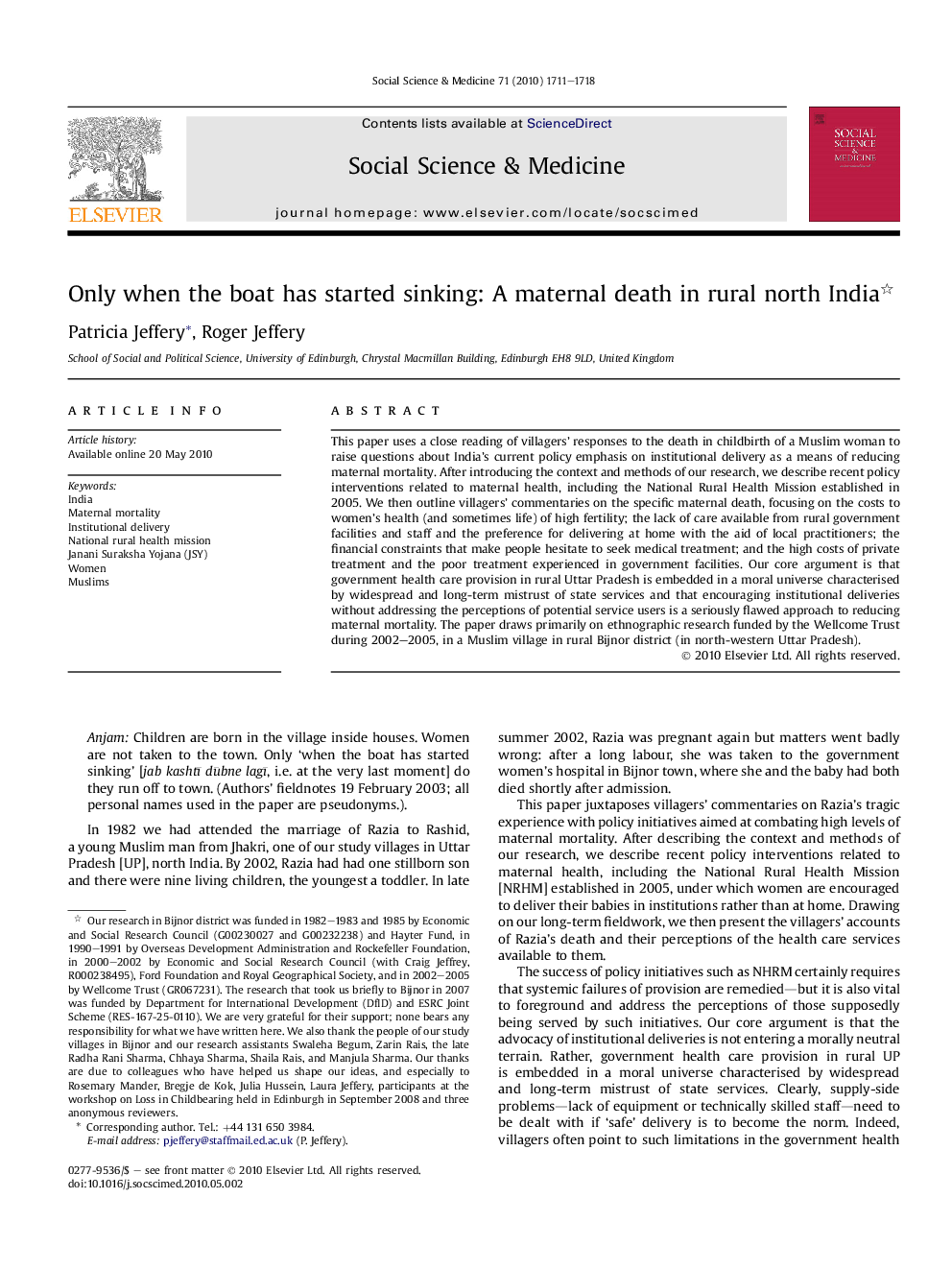| Article ID | Journal | Published Year | Pages | File Type |
|---|---|---|---|---|
| 10471800 | Social Science & Medicine | 2010 | 8 Pages |
Abstract
This paper uses a close reading of villagers' responses to the death in childbirth of a Muslim woman to raise questions about India's current policy emphasis on institutional delivery as a means of reducing maternal mortality. After introducing the context and methods of our research, we describe recent policy interventions related to maternal health, including the National Rural Health Mission established in 2005. We then outline villagers' commentaries on the specific maternal death, focusing on the costs to women's health (and sometimes life) of high fertility; the lack of care available from rural government facilities and staff and the preference for delivering at home with the aid of local practitioners; the financial constraints that make people hesitate to seek medical treatment; and the high costs of private treatment and the poor treatment experienced in government facilities. Our core argument is that government health care provision in rural Uttar Pradesh is embedded in a moral universe characterised by widespread and long-term mistrust of state services and that encouraging institutional deliveries without addressing the perceptions of potential service users is a seriously flawed approach to reducing maternal mortality. The paper draws primarily on ethnographic research funded by the Wellcome Trust during 2002-2005, in a Muslim village in rural Bijnor district (in north-western Uttar Pradesh).
Related Topics
Health Sciences
Medicine and Dentistry
Public Health and Health Policy
Authors
Patricia Jeffery, Roger Jeffery,
